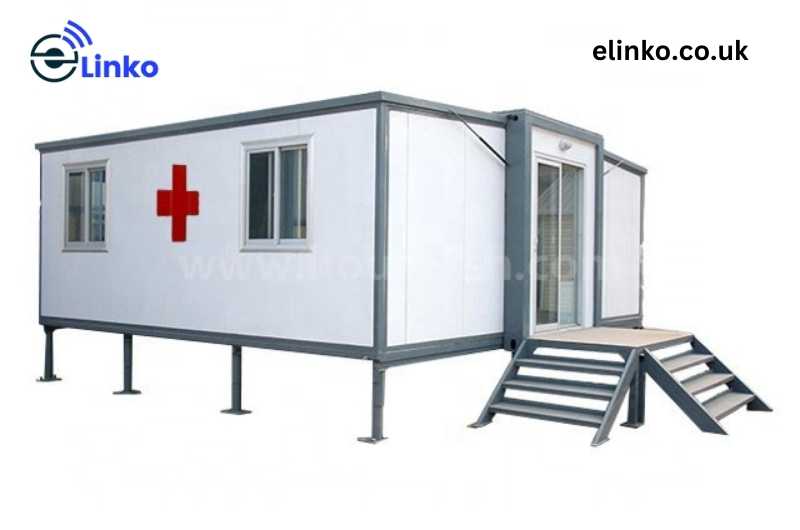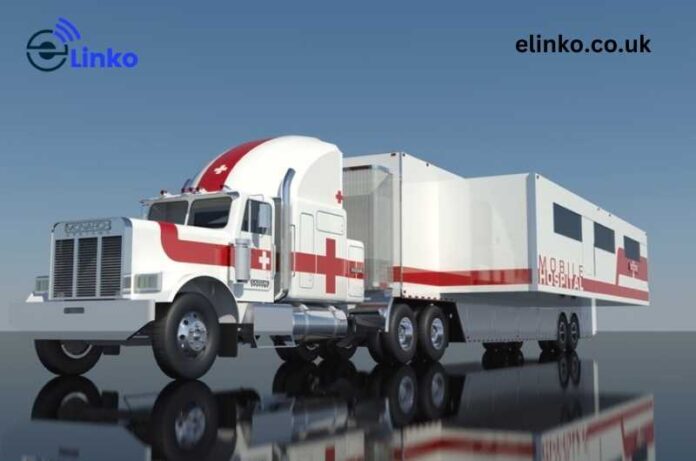The healthcare industry has mostly stayed the same in the past few decades, and it doesn’t seem to be getting any better, with costs continuing to rise and care becoming more complicated and specialized. Thankfully, there may be a solution on the horizon: mobile expandable hospitals that allow patients to get treatment while they’re still at home.
What are mobile expandable hospitals?
Mobile hospitals are a relatively new concept in healthcare, but they have been proven effective in providing hospital-level care in remote and underserved areas. Mobile hospitals are often deployed as pop-up tents that can be set up quickly and provide equipment and supplies needed to treat patients.
They are also more flexible than fixed clinics because they can be moved to meet changing needs in different communities. It could be the future of healthcare if we commit to investing in them now.
The benefits of mobile expandable hospitals
There is a growing need for medical facilities in developing countries. This may be due to an increase in population, or natural disasters and war could cause it. The latter has led to so many medical personnel being needed abroad that more doctors are needed at home.
One solution to this problem is mobile expandable hospitals. These hospitals can have up to 300 beds and have a surgical suite and recovery area.
Facilities in Mobile Expandable Hospital
According to a new report by CNBC, an emerging trend in healthcare could be a game changer.
The concept is straightforward; you take a 20-foot container and transform it into an operating room. CNBC says these mobile expendables are used for medical missions in remote areas, disaster relief, and more.
Mobile Laboratory
The mobile laboratory is used to aid rural healthcare access and has been found to have a successful track record. The laboratory has proven that it can provide a much-needed service for those in remote areas often cut off from traditional medical care.
With this lab, patients can receive quick diagnosis and treatment. Mobile laboratories will make an invaluable contribution to the health of rural populations, improving their quality of life and helping them live longer and more productive lives.
Mobile Pharmacy
Mobility has been critical in delivering healthcare to rural communities for decades. It’s only recently that mobile pharmacy services have evolved to include on-site vaccine storage, refrigerated medication delivery, and telehealth consultations.
In Kenya, for example, mobile clinics provide HIV patients with daily doses of antiretroviral drugs and offer pre-exposure prophylaxis to HIV-negative people but at high risk for infection. This is one-way mobile pharmacies can expand healthcare access to rural communities.
The challenges of mobile expandable hospitals

The idea of a mobile expandable hospital will be essential for healthcare as we know it, but many challenges need to be addressed before this becomes a reality.
One of the most significant issues is finding a way to make these hospitals inexpensive enough to take them all over the world. The materials and technology needed for this type of hospital will also have to be researched and developed to create something that can withstand any environment.
High cost is a big Challenge.
The high cost of healthcare is a significant challenge for both countries and individuals. For countries, it’s an issue because they can’t provide for their citizens’ needs; for individuals, it becomes a source of anxiety as they fear what will happen if they get sick or injured. Mobile expandable hospitals are one possible solution to this problem by providing affordable care in remote locations.
Shortage of Technology at Large Scale
Many hospitals are struggling to keep up with technology, and as a result, many patients are not receiving the care they deserve. If hospitals were to adopt mobile expandable hospitals, they would be able to bring healthcare to more people while using fewer resources.
What technology is used in Mobile Expandable Hospitals?
These are relatively new idea in the health industry. The idea is that, rather than build a hospital from scratch every time there’s an emergency, you can make small temporary ones, and as they are needed, they can be expanded to meet demand.
There are many mobile expendables: some use tents, and others use containers modified for medical purposes.
The technology used in these hospitals will vary depending on the type of structure being used. With tent-based hospitals, there is little need for anything but a generator; container-based hospitals may also require heating and air conditioning units. All will depend on the resources available at the site where the facility needs to be constructed.
How can costs be reduced?
The cost of healthcare in America is high, but it doesn’t have to be. There are a few ways that we can reduce costs. The first way is by providing healthcare to people who are not insured or are underinsured. Health care should be a right, not a privilege.
Another way we can reduce costs is by using mobile expandable hospitals, which would make medical treatment more accessible to rural communities and areas with large populations like cities.
The future of healthcare
Imagine a hospital that could be delivered and deployed to any disaster or warzone in the world with just one day’s notice. It’s a vision that some medical experts say is closer than you might think. The idea is called mobile expandable hospitals, and it was first proposed by Dr. Fred Molyneux, who has been working on them for over five years.
How may it Save Lives?
A mobile expandable hospital is a transport vehicle that can be quickly converted into a hospital. These hospitals are built to provide medical services for up to 500 patients and could offer medical supplies for up to three months.
They are designed to be used in areas that need access to healthcare but do not have it. One example is Haiti, where over 6 million people have no healthcare access. Mobile expendables could help meet this demand and save many lives.
Conclusion
For years, the idea of a mobile hospital has been bandied about as a way to provide medical services in remote or underserved areas. Thanks to technological and engineering advances, that vision could become a reality.
The idea for mobile hospitals is essentially like this: you take an ordinary bus, equip it with everything needed to perform surgery-from tables and lights to medical equipment–and then use it to bring healthcare services directly into areas where they are needed most.



